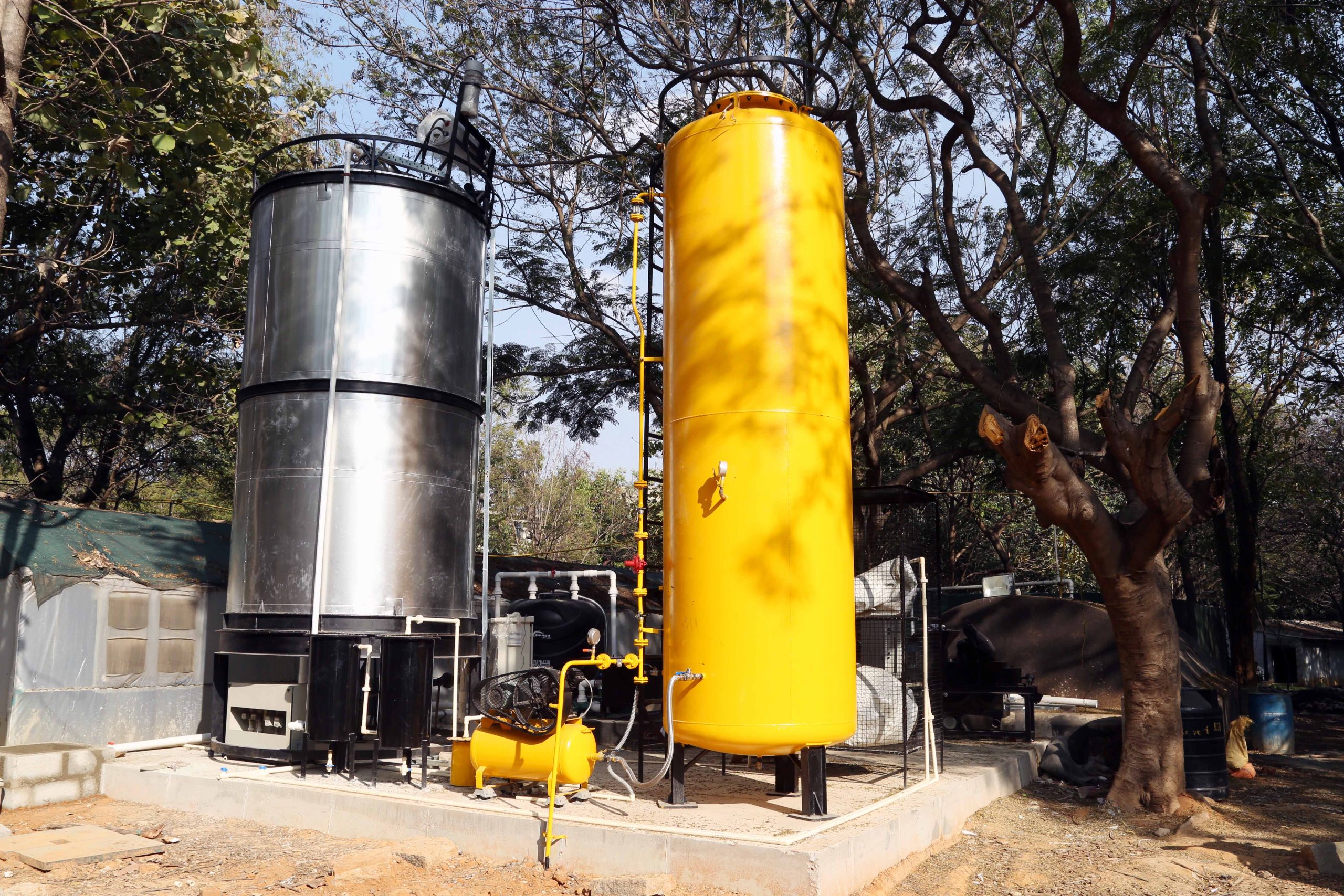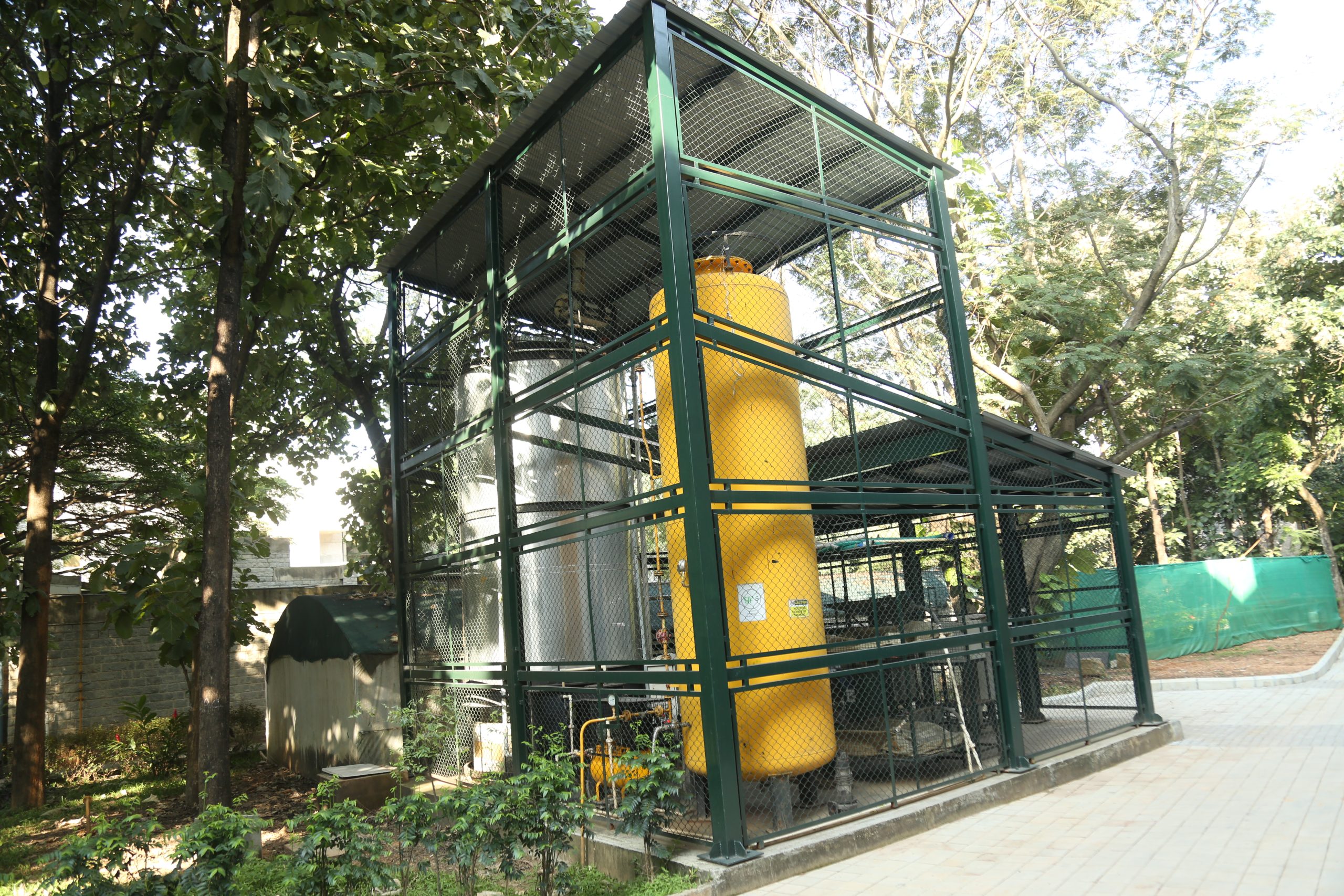In-campus biogas system that transforms daily leftovers into cooking fuel and compost
In a world increasingly turning its attention to sustainable living, IIMB stands out with a hands-on, efficient approach to waste management, particularly in food waste. At the heart of this initiative is a biogas plant that doesn’t just process waste; it powers kitchens, nourishes the soil, and sets an example for others.
Converting Waste into Clean Energy
Installed in 2016, IIMB’s biogas plant has become an integral part of its sustainability ecosystem. With a treatment capacity of 400 kg per day, the plant digests food waste collected from across campus, including hostels, staff quarters, canteens, and converts it into biogas used for cooking.
On a typical day, 600–700 kg of food waste is collected, and after careful segregation, the suitable portion is fed into the digesters. The outcome is an energy yield equivalent to 22 kg of LPG per day, enough to replace two full LPG cylinders, which now fuel open vessel cooking in the canteen.
Full-Circle Waste Management
This initiative goes far beyond energy generation. The by-product of biogas processing is nutrient-rich compost, which is used as natural manure for campus gardens and green spaces. It reduces reliance on chemical fertilizers and enhances the biodiversity of the campus.
Meanwhile, the waste segregation system ensures 100% sorting at the source. Dry waste is divided into 15–17 categories and sent to authorized recyclers, while wet waste is composted using microbial culture. This holistic model ensures that nothing goes to waste, and everything finds a productive end use.
Sustainability in Action
Commissioned on January 2, 2016, the biogas plant is a testament to how even the most basic waste, like leftover food, can be turned into a powerful resource. It reduces the carbon footprint of the institute, cuts down on commercial fuel dependency, and reinforces IIMB’s role as a thought leader in campus sustainability.
Looking Ahead
Every day in the mess, plate waste is measured and publicly displayed on a board, serving as a visible reminder of collective responsibility. Each dining table carries a message: ‘Vision: Zero Plate Waste’ and a prominent notice board says, “Don’t waste food. Take only as much as you need and finish it all.” These small, consistent nudges reinforce a larger value system that promotes mindfulness, reduces waste at its source, and fosters a campus community that is proud of sustainable living.
